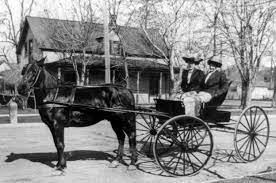
What is it about travel? The urge to move, to discover, to see, is a poem unto itself. A rich vein worth mining.
Often travel is rooted in the psyche. Moving one’s home, restlessly, is a form of travel–only what are we fleeing? What are we seeking? Do we think we will be a new person if we find ourselves among strangers in a strange land? If we do, we forget (or deny) the “setting within.” You can escape place, yes, but you can never escape the topography of self.
All of these questions came to mind in Geoff Dyer’s book Out of Sheer Rage. Though it is ostensibly a book about D.H. Lawrence, it is about most anything but D.H. Lawrence, too. Still, Lawrence shadows the author (who shadows him) throughout and, at the end in Taos, New Mexico, Dyer wonders about Lawrence’s wandering soul:
“At various times Lawrence wondered why he had drifted so far from his inclination to sit tight: ‘What is it, makes one want to go away?’ ‘Why can’t one sit still?’ ‘Why does one create such discomfort for oneself!'”
In search of answers himself, Dyer purchases a discounted copy of Elizabeth Bishop’s poetry at a nearby bookstore and pauses over her poem “Questions of Travel.” It is a moment all readers know well. A moment of synchronicity where we feel we were fated to open a book and read words which transect present preoccupations.
As summer grinds on with all its travel plans, I see new wisdom in Bishop’s poem myself. Dyer’s synchronicity becomes mine, yet another variation of the reader-writer transaction that ripples out to the forever-shores of reading. I especially love Bishop’s comparison of strange lands to a stage (“Is it right to be watching strangers in a play /in this strangest of theaters?”), as if the “real” of distant places is actually the “make-believe” to our foreign eyes–if only because our eyes cannot otherwise make sense of them and feel a need to write our own narratives.
Or maybe we don’t want to make sense of them at all. Maybe travel becomes the essence of escape that way. Thus, the strangers we see in a distant land become storybook cutouts from the distant land of our nostalgic pasts–ones that never really existed and still don’t, only we will them into existence as a panacea for all that hectors us in the hellbent humdrum of our daily lives.
As you read (or reread) Bishop, consider your own restless roots. See if you can find the “why” in yourself, photograph it, maybe, and look at it later, marveling at how different it looks from the perspective of time and experience.
“Questions of Travel” by Elizabeth Bishop
There are too many waterfalls here; the crowded streams
hurry too rapidly down to the sea,
and the pressure of so many clouds on the mountaintops
makes them spill over the sides in soft slow-motion,
turning to waterfalls under our very eyes.
–For if those streaks, those mile-long, shiny, tearstains,
aren’t waterfalls yet,
in a quick age or so, as ages go here,
they probably will be.
But if the streams and clouds keep travelling, travelling,
the mountains look like the hulls of capsized ships,
slime-hung and barnacled.
Think of the long trip home.
Should we have stayed at home and thought of here?
Where should we be today?
Is it right to be watching strangers in a play
in this strangest of theatres?
What childishness is it that while there’s a breath of life
in our bodies, we are determined to rush
to see the sun the other way around?
The tiniest green hummingbird in the world?
To stare at some inexplicable old stonework,
inexplicable and impenetrable,
at any view,
instantly seen and always, always delightful?
Oh, must we dream our dreams
and have them, too?
And have we room
for one more folded sunset, still quite warm?
But surely it would have been a pity
not to have seen the trees along this road,
really exaggerated in their beauty,
not to have seen them gesturing
like noble pantomimists, robed in pink.
— Not to have had to stop for gas and heard
the sad, two-noted, wooden tune
of disparate wooden clogs
carelessly clacking over
a grease-stained filling-station floor.
(In another country the clogs would all be tested.
Each pair there would have identical pitch.)
— A pity not to have heard
the other, less primitive music of the fat brown bird
who sings above the broken gasoline pump
in a bamboo church of Jesuit baroque:
three towers, five silver crosses.
— Yes, a pity not to have pondered,
blurr’dly and inconclusively,
on what connection can exist for centuries
between the crudest wooden footwear
and, careful and finicky,
the whittled fantasies of wooden cages
— Never to have studied history in
the weak calligraphy of songbirds’ cages.
— And never to have had to listen to rain
so much like politicians’ speeches:
two hours of unrelenting oratory
and then a sudden golden silence
in which the traveller takes a notebook, writes:
‘Is it lack of imagination that makes us come
to imagined places, not just stay at home?
Or could Pascal have been not entirely right
about just sitting quietly in one’s room?
Continent, city, country, society:
the choice is never wide and never free.
And here, or there… No. Should we have stayed at home,
wherever that may be?’

